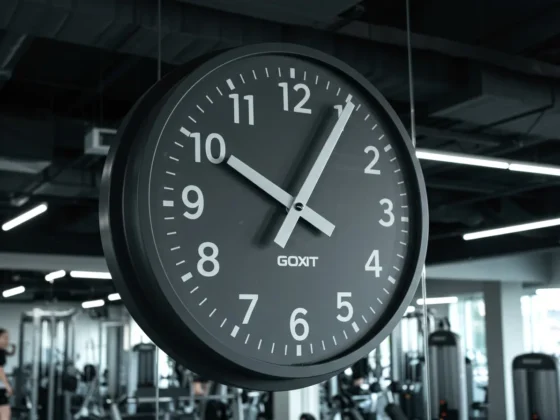Alright Fit Fellows, let’s talk about the supplement game. You walk into that aisle, and bam! It’s like a carnival barker on every bottle, promising the world. Muscle in a bottle, energy for days, brainpower boost… it’s enough to make your head spin. But for us guys who are serious about fitness and health, navigating this space needs a strategy, not just grabbing whatever shiny bottle catches your eye.
Supplements: Not a Magic Bullet
Think of it this way: your body is the engine, and your diet is the premium fuel. Food gives you the vast majority of what you need – all those vitamins, minerals, fibers, and other cool compounds working together in a way science is still trying to fully understand. Supplements? They’re like the high-performance additives. They can give you a targeted boost, fill a specific gap, or support a particular goal, but they’re never the main fuel source. If your diet is junk, popping pills isn’t going to build a high-performance machine. Period.
Why Smart Supplementation Matters (The ‘Why’)
So, why even bother with supplements then? Well, even with a dialed-in diet, sometimes you might fall short on certain nutrients. Or maybe your training is intense, increasing your needs beyond what’s practical to eat. That’s where smart supplementation comes in. It’s about being strategic, understanding what you might need based on your diet, your lifestyle, and your goals. It’s not about taking every trendy supplement; it’s about taking the right ones for you.
Before You Buy: Essential Preparation (What You Need)
Before you even think about dropping cash on supplements, there’s some groundwork to do. This is the ‘what you need’ part. Don’t skip this stuff; it’s the foundation for making smart choices.
- Get Real About Your Diet: Honestly assess what you eat regularly. Are there food groups you miss? Are you consistently hitting your protein goals? Maybe track your food for a few days to get a clear picture of potential nutrient gaps.
- Define Your Goals: What are you training for? General health? Building muscle? Endurance? Your specific objectives will point you towards certain supplements that might be helpful.
- Consult a Pro: Seriously, talk to a doctor or a registered dietitian. They can check for actual deficiencies, tell you if a supplement might interfere with any medication, and give advice tailored to your health status. This is non-negotiable. They might even suggest blood tests for things like Vitamin D levels.
How to Implement Your Strategy (The ‘How-To’)
Okay, so you’ve assessed your diet, defined your goals, and hopefully, chatted with a doc or dietitian. Now, how do you actually implement smart supplementation?
Don’t go nuts and buy ten bottles on day one. Start slow. Pick one or two supplements that align with your identified needs and goals and see how you respond. Think of it like testing the waters.
Key Supplements to Consider
Let’s look at a few common ones that pop up a lot for guys focused on fitness and health:
- Protein Powder: If you’re lifting heavy or very active, protein needs climb. Getting 150-200g+ from food isn’t always easy or convenient. A protein shake is a straightforward way to help meet those needs, supporting muscle repair and growth. Pick a type that suits you – whey is fast, casein is slow, and there are plenty of plant-based options.
- Creatine: This is one of the most researched and effective supplements for boosting performance in high-intensity activities like lifting or sprinting. It helps with energy production, leading to potential gains in strength, power, and muscle size. It’s safe for most healthy guys and consistent daily use (like 5g) is key.
- Vitamin D: Many of us don’t get enough sun, leading to low Vitamin D levels. This isn’t just about bone health; it’s crucial for immune function and mood. If your levels are low (get them tested!), supplementing with Vitamin D3, often with K2, can be really beneficial.
- Omega-3 Fatty Acids: Found in fatty fish, these fats are superstars for heart and brain health, and they help manage inflammation. If you’re not eating fish a couple of times a week, an omega-3 supplement (fish oil or algae) is a smart addition. Look for good amounts of EPA and DHA.
Choosing Quality & Using Them Wisely (Tools & Tips)
The supplement industry isn’t as strictly regulated as medications, so you gotta be smart about where you get your stuff.
- Look for Third-Party Testing: This is huge. Certifications from groups like NSF, Informed-Sport, or USP mean an independent lab has checked that the product contains what it says it does and is free from contaminants or banned substances. It’s an extra layer of confidence.
- Read the Label: Pay attention to dosage instructions. Don’t assume more is better – it’s often not and can even be harmful.
- Consider Timing: For some supplements, like protein or creatine, timing around your workout might be slightly beneficial or convenient. For others, like Vitamin D or Omega-3, consistency every day is what matters most.
- Think Long-Term: Smart supplementation is part of a consistent lifestyle, not a short-term fix. Stick with the supplements that work for you as part of your overall diet and training plan.
Putting It All Together
Navigating the supplement world doesn’t have to feel like the wild west. By starting with a solid diet, understanding your personal needs and goals, getting professional advice, and choosing high-quality products wisely, you can use supplements strategically to support your fitness and health journey. They’re powerful tools when used correctly, but remember, they supplement a healthy lifestyle, they don’t create it. Stay consistent with the basics, and add supplements as needed to give you that extra edge. That’s how you build the best version of yourself.

















